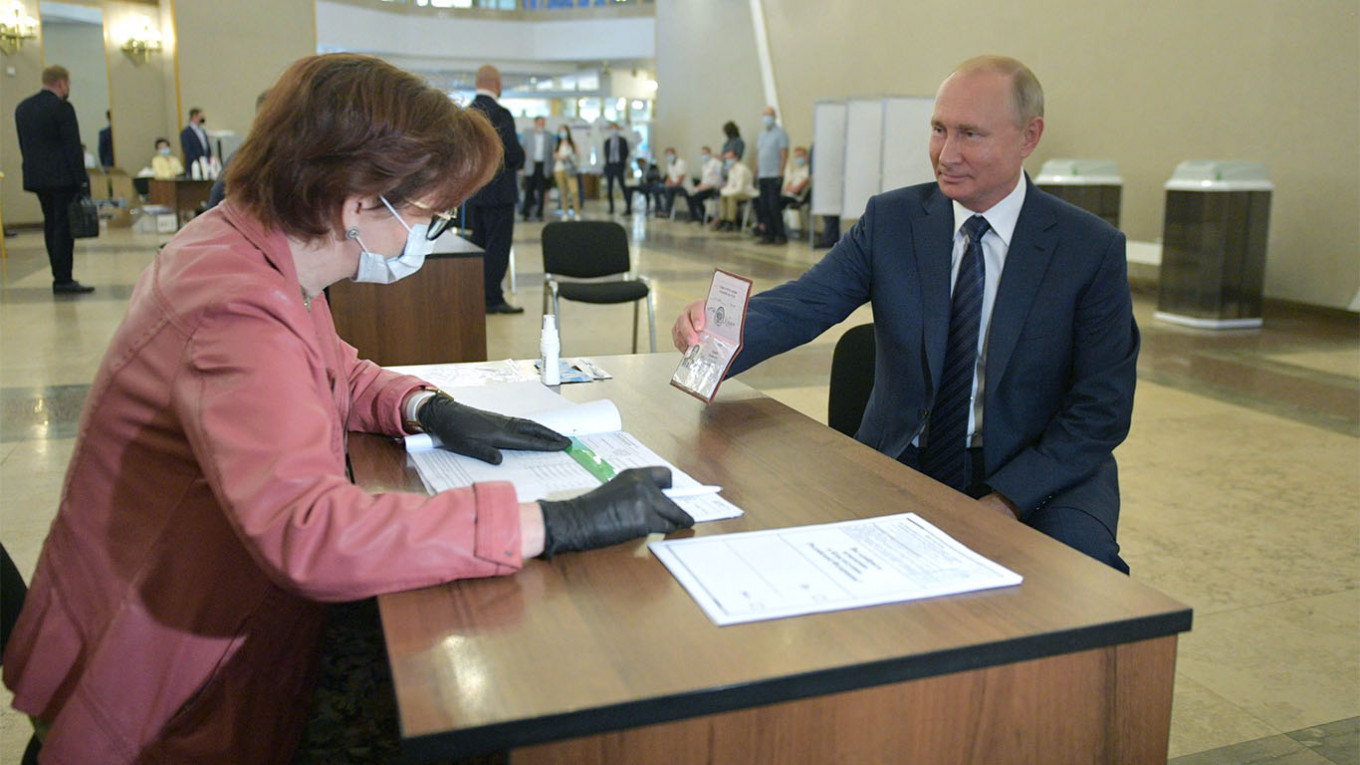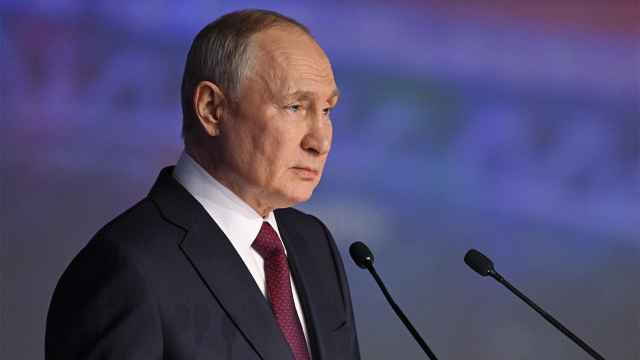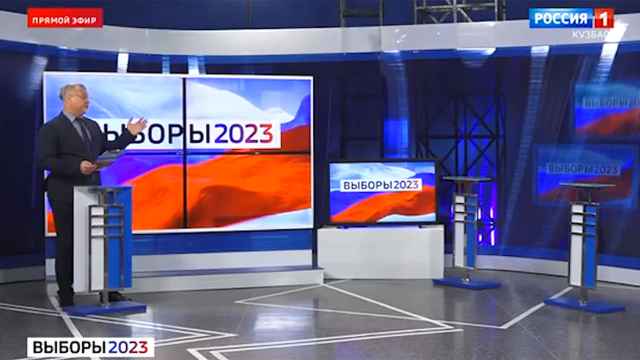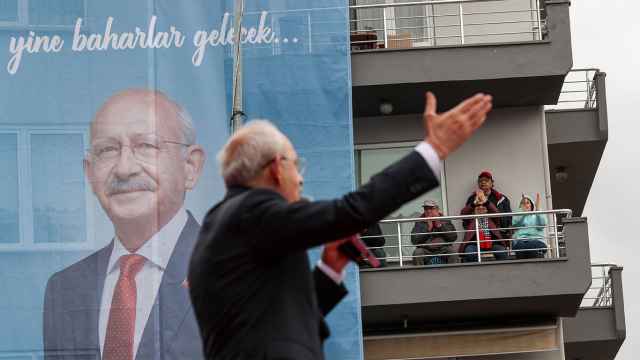“A plebiscite on trust in Putin ended with victory for the head of state” — so runs the headline of a July 2 story relaying the view of State Duma speaker, Vyacheslav Volodin.
А “de facto triumphal referendum on trust in President Putin” — so said Kremlin spokesperson, Dmitry Peskov.
A “plebiscite on the consolidation of society around Russian president, Vladimir Putin” — so said Moscow mayor, Sergei Sobyanin.
These statements were made hours after the result of the “nationwide vote” on constitutional changes was announced, in which 78% of Russians approved the set of reforms on a 68% turnout, according to the Central Electoral Commission.
There is a problem, though, with the statements.
Quite apart from allegations of large-scale falsification, the Russian authorities had been saying precisely the opposite of points included in these statements before and during the vote. This was not a referendum, they said (which is true). This was not about Putin personally, it was claimed — it was about the 206 reforms proposed and endorsed by him.
As is well known, one of these changes allows Putin to run again for the presidency in 2024, and stay in power until 2036. But the authorities downplayed the importance of this amendment before the vote, implying citizens should focus on other changes. The implication? Again, this vote was not specifically about Putin.
Of course, many commentators saw through the Kremlin’s rhetoric in the run-up to the vote . This was clearly a plebiscite on Putin — a rallying point aimed at reinjecting enthusiasm for the Russian leader, much needed since a sharp slump in his approval and trust ratings.
But the Kremlin stuck to its line in the lead-up to the vote.
By turning around after the vote and framing it as precisely being about Putin is brazen. So brazen, in fact, that it should give pause for thought. What’s really going on here?
It’s all about the elite
The answer lies in the real audience for the vote result and the opening statements.
That audience is not the Russian people. It’s the political elite.
Why? As Putin admitted in a TV interview broadcast on June 21, the “zeroing” amendment was a way of stopping the elites fixating on who might be Putin’s successor as president. Instead, the president said, members of the elite should be getting on with their jobs.
This admission, of course, exposes another fiction. When Valentina Tereshkova — national hero, first woman in space, and current parliamentarian for United Russia — proposed her “zeroing” amendment to Putin’s reform bill on the State Duma floor, she said this was the will of the people: 'People, people! Ordinary people simply asked for it. They asked!’
By admitting this was a move to keep members of the elite under control, Putin let slip slightly the thin, ragged veil of democratic legitimacy that still hangs in front of some political life in Russia. In reality, the amendment was crafted by the Kremlin to shore up Putin’s own position.
Now that the vote is finished, comments like those from Volodin, Peskov, and Sobyanin are another way to hammer home to the elites that Putin remains in the driving seat.
This is the Kremlin's message: the "impressive" vote result does not relate to the odd jumble of constitutional changes. They are an endorsement of Putin personally — and give him the chance to remain head of state until he is 83 (should he so choose). Members of the elite should think more than twice before preparing for life after Putin.
Even if the turnout and “yes” figures were heavily inflated by manipulation and falsification, and the elite knows about it, that doesn’t really matter. The authorities will point to these now-public vote result figures as evidence in themselves of the vote’s legitimacy. As journalist Masha Gessen has argued, “legitimacy is determined by the margin.” This fiction retains its power as long as the majority of citizens don’t actively challenge the official result. And, so far, it looks like they won’t — in the short term, at least.
Bang on message, both Andrei Klishas and Pavel Krasheninnikov — co-chairs of the constitutional working group responsible for developing amendments to Putin’s reform bill during its passage through the State Duma — linked high turnout to the legitimacy of the constitutional changes.
Language and power
Statements from the authorities that the “nationwide vote” was, in the end, all about Putin might be true — but they expose the long lie that went before. By flipping the rhetoric so quickly and in blatant contradiction to so much of what was said before and during the vote, the Kremlin has, at best, shown its contempt for the importance of consistency or, at worst, its contempt for Russian voters themselves.
True, most — if not all — politicians, including in democracies, are guilty of modifying their language for political expediency sometimes and to some degree. But they often put more effort into trying to justify, or fudge, these word games. By so obviously not attempting to do so, the authorities in Russia demonstrate both their lack of accountability — and their desire to make sure elites hear the message about Putin and the vote loud and clear.
A Message from The Moscow Times:
Dear readers,
We are facing unprecedented challenges. Russia's Prosecutor General's Office has designated The Moscow Times as an "undesirable" organization, criminalizing our work and putting our staff at risk of prosecution. This follows our earlier unjust labeling as a "foreign agent."
These actions are direct attempts to silence independent journalism in Russia. The authorities claim our work "discredits the decisions of the Russian leadership." We see things differently: we strive to provide accurate, unbiased reporting on Russia.
We, the journalists of The Moscow Times, refuse to be silenced. But to continue our work, we need your help.
Your support, no matter how small, makes a world of difference. If you can, please support us monthly starting from just $2. It's quick to set up, and every contribution makes a significant impact.
By supporting The Moscow Times, you're defending open, independent journalism in the face of repression. Thank you for standing with us.
Remind me later.








